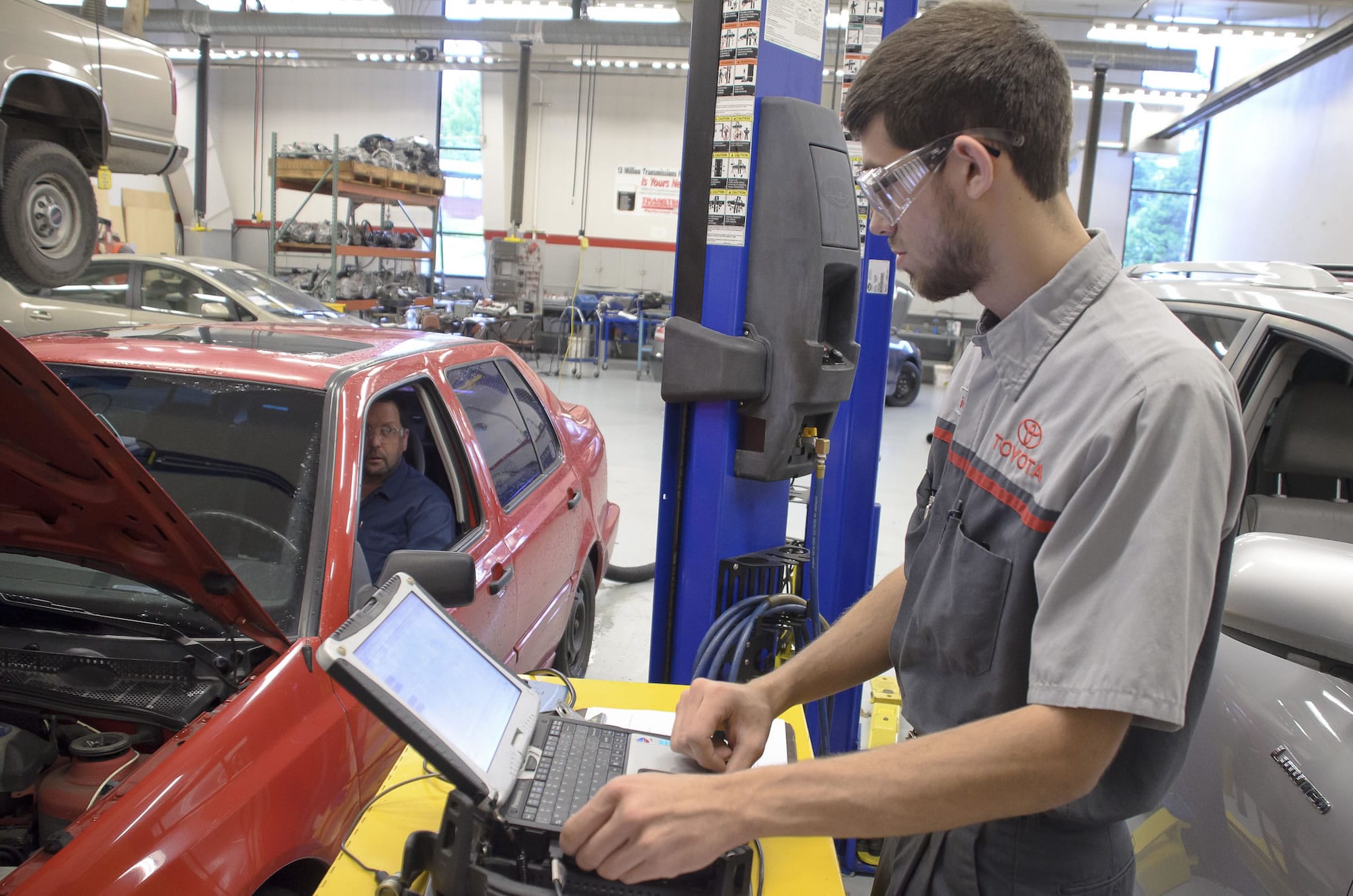This story was written by a staff member of The Independent, Clark College’s campus newspaper, as part of a collaboration with The Columbian called Voices From Clark College. It was published Wednesday in The Independent.
Toyota Motor Corp. is upgrading a partnership with Clark College, and about 40 other community colleges and vocational schools nationwide, that provides training and jobs for automotive students.
In return for its support of the auto training programs, the Japanese automaker will employ technicians from Clark College’s automotive program who are specialized to work on Toyota vehicles.
The partnership is an upgrade to the approximately 25-year-old Toyota Technical Education Network program designed to train technicians for careers within Toyota dealerships, Clark College automotive instructor Jason Crone said.
Until now, students in the Toyota training program and general automotive students have received the same training. Beginning next fall, the program will split into a nighttime general automotive program and a daytime program with a Toyota-specific curriculum, both extending two years, Clark College automotive department professor Tonia Haney said.
“It’s a very aggressive plan to get these students ready,” Haney said of the Toyota program. “It’s going to be an excellent program — one of the top in the nation.”
Ten local Toyota dealerships will recruit at least two high school students each for the program. Following high school graduation, those students will alternate between one quarter in classes at Clark, where they will work in structured labs, and one quarter in a paid internship at a Toyota dealership. They’ll continue working in the dealerships after graduation.
“They’re literally just graduating into the job they’ve already been doing,” Crone said.
The change gives students more hands-on experience and will provide Toyota with higher-skilled technicians. However, at 40 class hours per week, the program will be highly intensive.
“It’s going to be tough on those dudes,” current Toyota program student Cameron Stetler said.
Toyota donated about $2 million in vehicles and broken car parts to Clark so instructors can simulate real-world problems in class, Haney said.
Toyota originated the idea of establishing separate training programs in 2009 after the company evaluated Toyota training programs in schools nationally. It found that none met the training standards the company required in technicians, said Mike Godson, head of Clark’s automotive department.
Evolving technology
When the automaker approached Clark, the college was already restructuring its curriculum to address evolving technological demands, Crone said.
“They’ve really helped us achieve a level we were already struggling to reach,” he added.
Although high school students are targeted for recruitment, anyone can participate. “We would just as happily work with an older student,” Crone said.
College officials say anyone interested in the program should talk to one of the college’s automotive teachers.
If all goes as planned, in two to three years around 20 students will be in the general nighttime classes and 40 will be in the Toyota program, Godson said.
“We really view Toyota as our future,” he said.
In fact, one of the goals of the Toyota program is to make industry jobs that once required years of prior experience accessible to a wider range of people. Most auto manufacturers have similar sponsorship programs that allow individuals the opportunity to get jobs and experience at the same time, Haney said.
“To me, a car is a car is a car,” Haney said. Although students will be learning to work on Toyota vehicles, she added, the college’s goal is provide students with the diagnostic and critical- thinking skills necessary to fix any problem on any vehicle.
The investment students make in the program should pay off in the job market, Crone believes. For instance, 10 to 15 years in the industry can earn a technician a salary of $80,000 to $100,000 per year, he said.
“For those that wish to apply themselves, they can really achieve a lot and go far,” he said.



